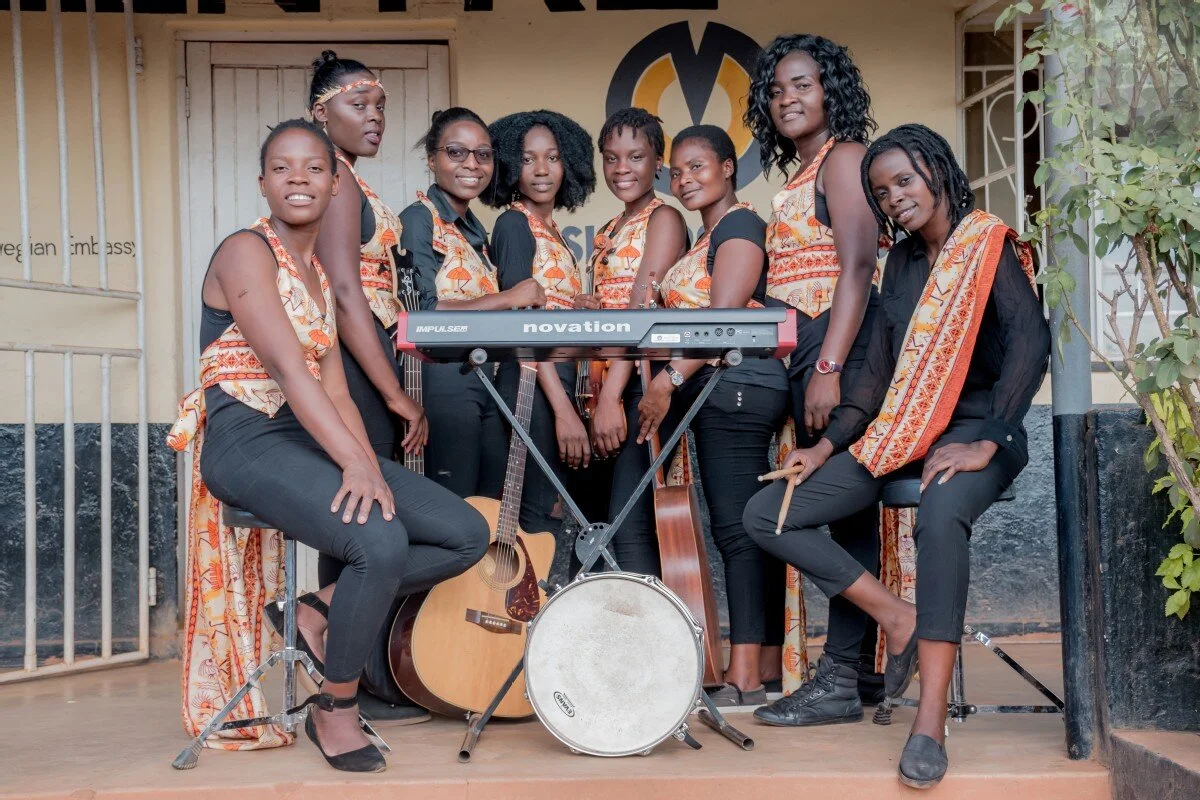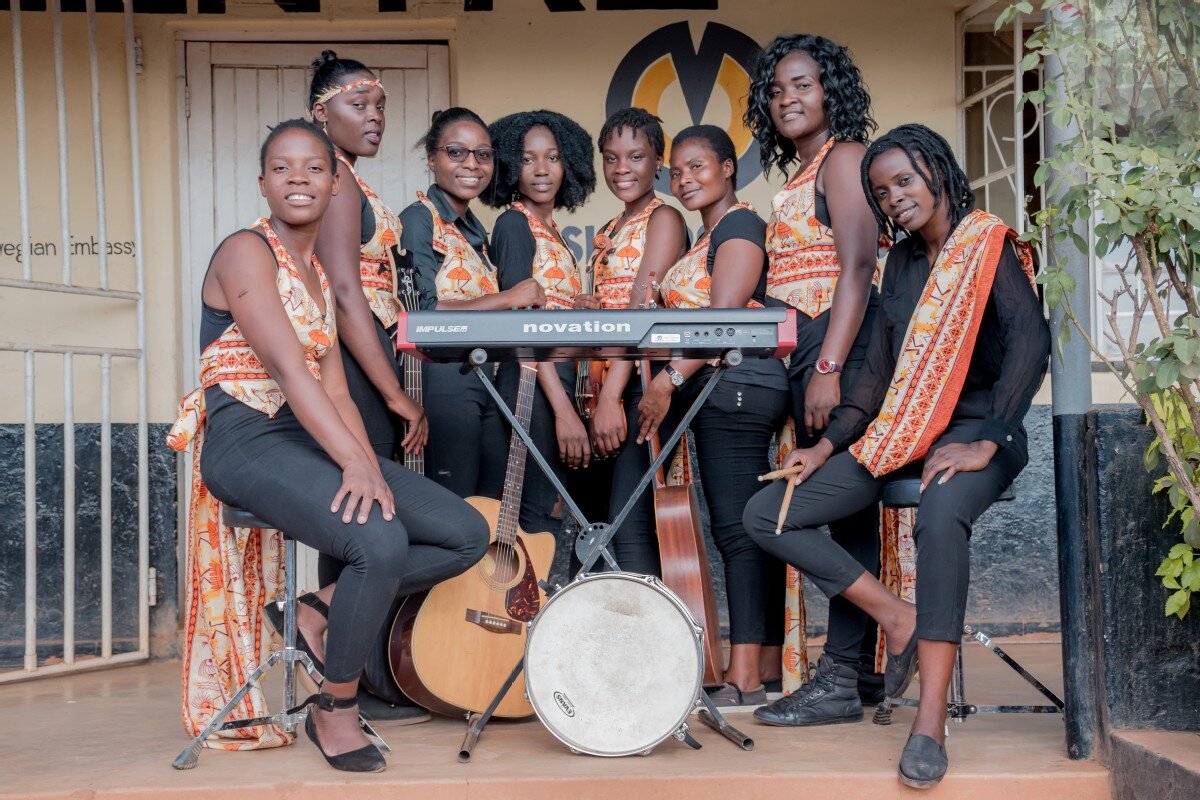Music Crossroads: empowering young people in Africa through music
Malawi, Mozambique and Zimbabwe are countries in Southern Africa with great cultural diversity. Where music plays a central role, withholding immense rich musical traditions, there is also a lack of music education institutions. This has previously made it difficult for young people to turn their music into sustainable careers. This, until Music Crossroads opened its doors. Through delivery of effective training previously unavailable, Music Crossroads has started to revolutionize the music sector helping to turn huge young talent, regardless of background, and exceptional music traditions into local career opportunities
Established in 1995 by JM International, the world’s largest youth music network (www.jmi.net), Music Crossroads has evolved today to offer a range of activities and courses for young musicians. In 2013 the Music Crossroads Academies were initiated in Lilongwe, Maputo and Harare, and since then many students have enrolled, empowering them with an innovative music education program and the necessary tools for a career in music.
Professional Certificate Program
At the Music Crossroads Academies, students gain knowledge and skills through the newly designed curriculums part of the Professional Certificate Program. The program runs over 3 years, providing students with a full-fledged course taught by internationally trained teachers.
The innovative curriculum is developed by the Global Music Academy (GMA) from Germany, who have many years of experience developing curriculum in such a way to allow young people to progress and express their musical creativity within their own cultural environment. The curriculum is predominantly based on African and Africa-descendent music, which differentiates it from the other music curricula taught in the countries that often contain outdated teaching tools from the 19th century. Alongside the availability of high-quality musical equipment, instruments and facilities, the professional certificate program enables young talented musicians to turn into professionals. Since its inception, 970 students have passed through the doors of the Academies who have benefitted from the program.
Successful Students
Several bands and artists have submerged from Music Crossroads with flying colors, including the international world music band, Mokoomba, which started as an amateur band at Music Crossroads Zimbabwe, and is today Zimbabwe’s pride on the international music scene. Other artists and bands that have surfaced from the academies include names such as Jesa, Ernest Ikwanga, Jaco Jana, Deltino Guerreiro, Assa Matussa, and many more.
Whilst some graduates have succeeded on stage, others have ventured into the music sector in a different capacity, either as music teachers, music producers, cultural managers, local business owners, advocates through music, and some have continued their studies at various institutions, locally or abroad. Students who have proven to be exceptional knowledgeable and have shown a great sense of commitment to the program have upon graduation been taken on as teacher trainees, and are now working as music teachers at the academies.
Renowned young Zimbabwean guitarist Carl Nathan Tinarwo, a third year student at the Music Crossroads Academy had this to say about the program:
“When I enrolled with the Music Crossroads Academy in 2015, I was a rookie in playing guitar. I was eager to learn and looking for that place that would transform me remarkably. I started with nothing but now I live entirely on music. I have played on various big stages with several Zimbabwean top musicians e.g. Prudence Katomeni, Tamy Moyo, Takura, Edith WeUtonga, Jazz Invitation etc. Because of Music Crossroads I was able to attend the Ethno festival 2018 in Sweden which opened immense networks and opportunities in my musical career. The Music Crossroads Academy is the best thing that has happened in my life. I am forever Grateful.”
Internationally Trained Teachers
To ensure that the advanced curriculum is successfully being disseminated to the students, it requires a knowledgeable teaching staff. The MCA teachers have carefully been chosen based on their skill sets, knowledge and professionalism, and have received international training. Annually, the teacher teams also attend a culturally rich international campus where they receive follow-up training from the GMA team. The annual training ensures that the MCA teachers are up-to-date in the curriculum, as well as ensuring that they have the pedagogical and didactical skills to successfully teach their students.
As mentioned above, some successful graduates are recruited as teacher trainees. In the trainee program, they first receive training from the local teaching staff, whom transmit their knowledge and make sure that the trainees obtain sufficient teaching practice. Eventually the trainees will also attend the annual international campus to then become part of the MCA teaching staff.
Last year, we newly introduced training for brass instrument teachers. 14 teacher received training on saxophone, trumpet and trombone, and during the international campus the first ever Music Crossroads big band was formed. The training of the brass teachers allows for an expansion in the main instrument disciplines offered at the MCAs, enabling more students to enroll and widening the instrumental landscape in the countries. To date, 89 MCA teachers have received international training.
Amplifying Female Voices
One of the most common misconception in sub-Saharan Africa is that girls cannot play instruments or take leading roles in music performances, and if they do, it is often associated with bad things. This has led to women in music merely taking on roles as dancers or backing vocalists. Music Crossroads aims to break this stereotype by empowering women through a wide range of activities and projects, and by that also sensitizing the communities. Through this intensified effort, the MCAs have been able to annually reach the set target of a minimum of 30% female participation in the programs, and by that promoting gender equality.
Our goal is to support more students per year with a scholarship. Connect with us via email or visit our website on information on how you can help to make a difference through music. All contributions made to Music Crossroads go exclusively to sponsoring scholarships for our students.
Melody Zambuko
Country Director - Music Crossroads Zimbabwe










